- Details
- Last Updated on Tuesday, 01 May 2018 19:44
1933 - 1945: Grammar School and Early Gymnasium years (Junior High School)
Born 6 April 1933 in Praha, capital of Czechoslovakia. When I was 6, two presents from my father set the course for my future: a little chemistry set and a little physics set, both of which became my first laboratories. My scientific specialties included such things as changing red wine into white one, making explosions, creating colored fogs etc., based on the beautiful recipes of Amusing Experiments of a Young Chemist by Hynek Šalanský (in Czech: Zábavné pokusy mladého chemika, 1940), which was my first book I red full. From it, I learned all 92 elements known in that time with their chemical symbols, and Czech and Latin names.
World War II started for my country by invasion of Hitler, German occupation and forced formation of "Protectorate Böhmen und Mähren".(the borderland, called Sudetenland, was annexed by Germany, Slovakia formed a separate state). We had to live under faschistic dictatorship. In the school, we learned everything through German language (even when learning the Czech language).
In the evening Dacember 5th, 1939, somebody rang on our door: I expected St. Nicolaus with an angel and devil bringing presents for children. Usually, my father played the St. Nicolaus. It was really my father, but not as St. Nicolaus: he was bleeding in face, teeth in the pocket: he returned from the first investigation by Gestapo, the German secret police. As a magistrate director of the Praha district "Královské Vinohrady", he helped Jews in modifying their documents when possible and providing them food coupons, what was also illegal. Somebody denounced that to Gestapo and my father should be shot. My father's friend, a prominent actor Václav Vydra senior, visited the head of the Praha Psychiatric clinique, Professor MUDr. Zdeněk Mysliveček and recommended him my father to save him in his Clinique. 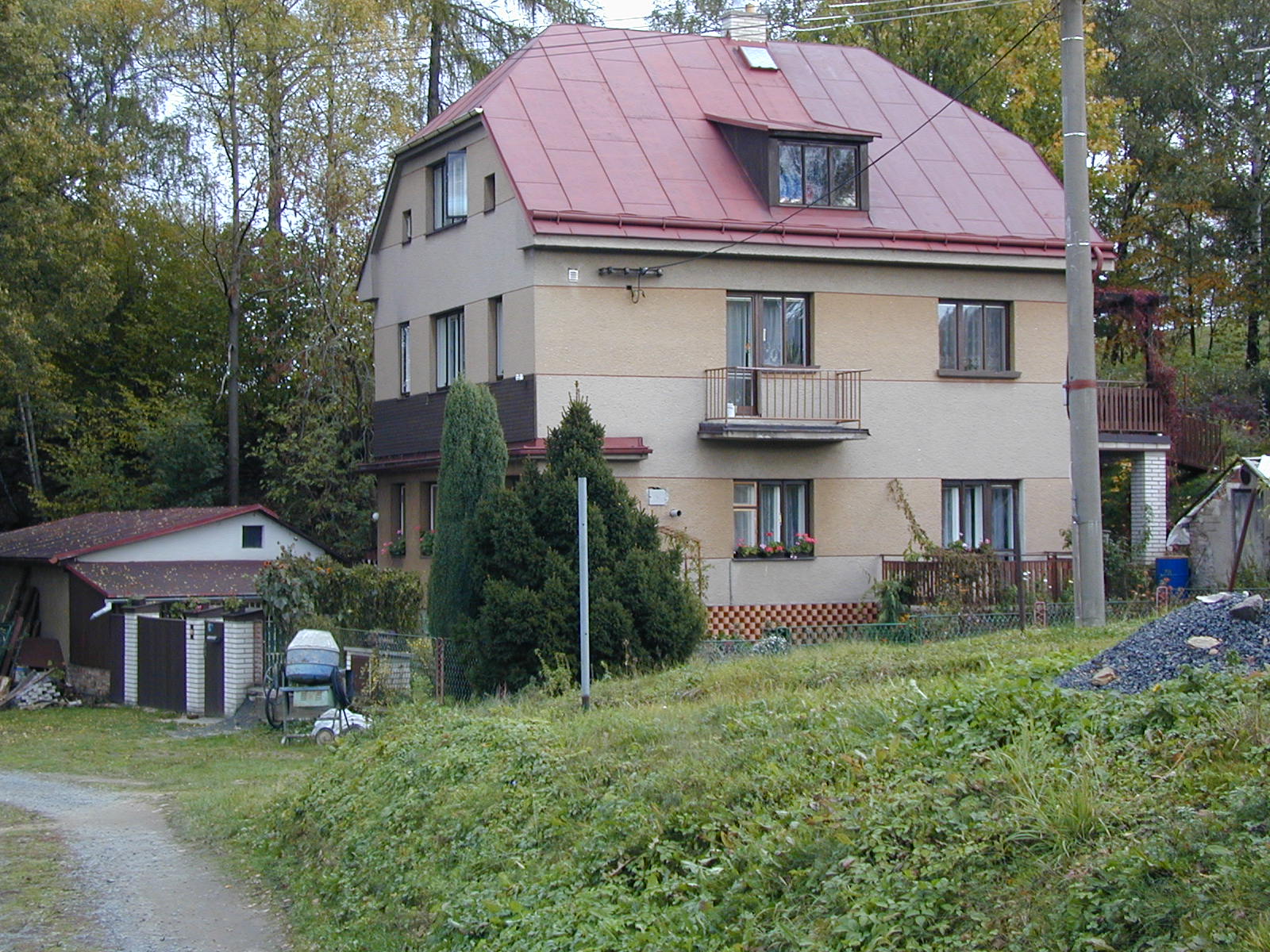
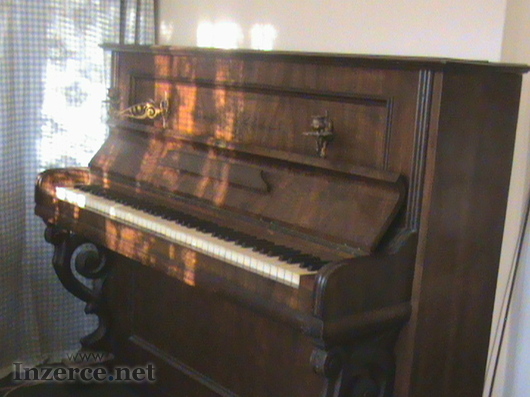 Německý Brod and my father was frequently permitted to live with us at our new home..
Německý Brod and my father was frequently permitted to live with us at our new home..
This dislocation interrupted my chemistry activities:We had no place for our pianino (Petrof), so I exercised on it moved into a neighbor's barn (both photos on the left). My love of our rabbits and geese - as pets, 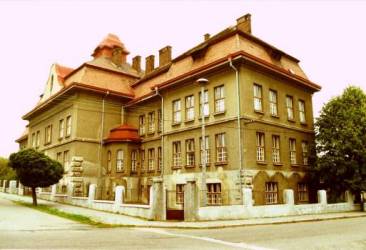 not as food! - nearly made me a vegetarian. The 5 kilometer one-way
not as food! - nearly made me a vegetarian. The 5 kilometer one-way 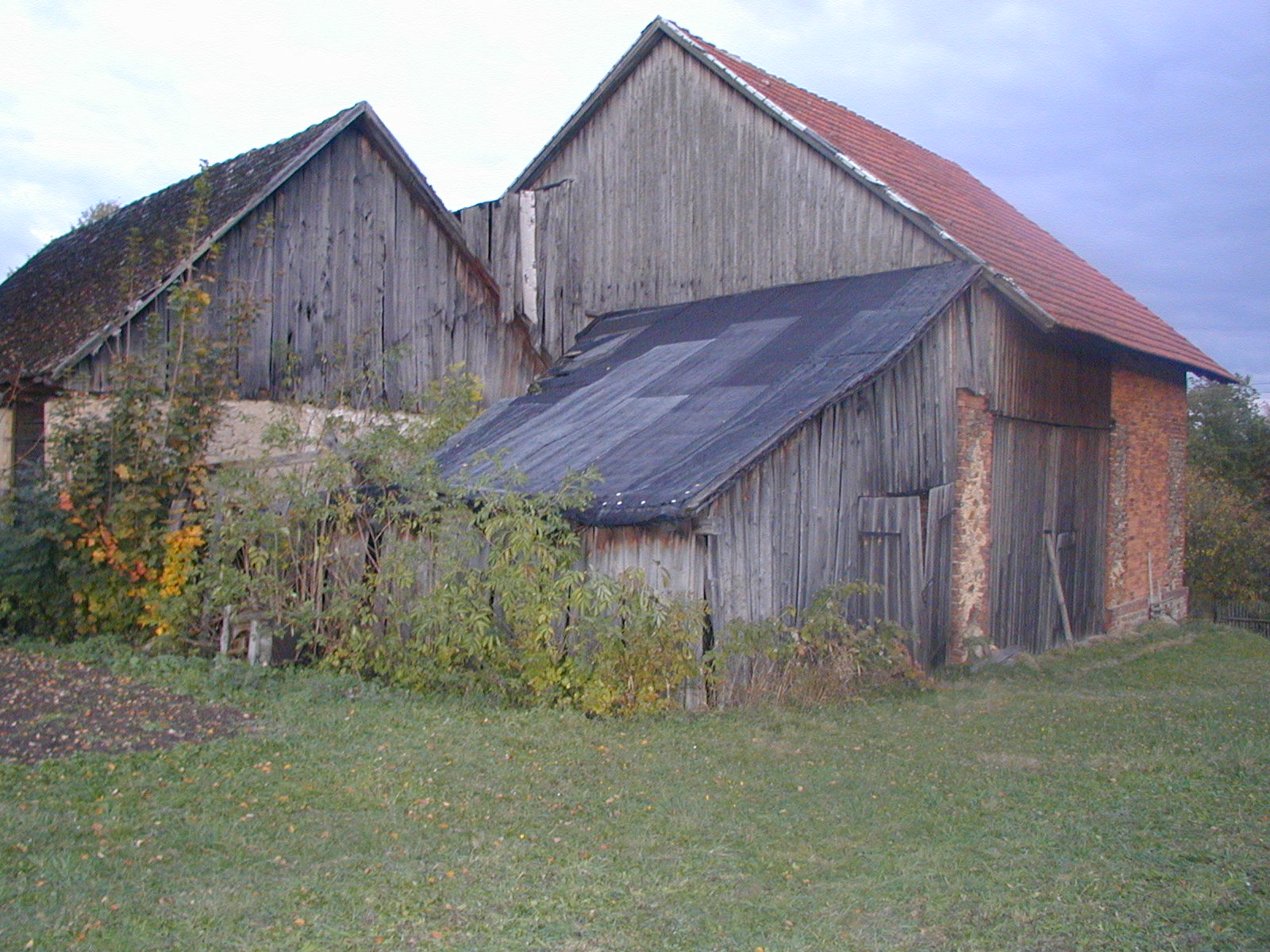
1945 - 1947: Middle of Gymnasium years (Junior High School)
After returning to Prague at the end of January 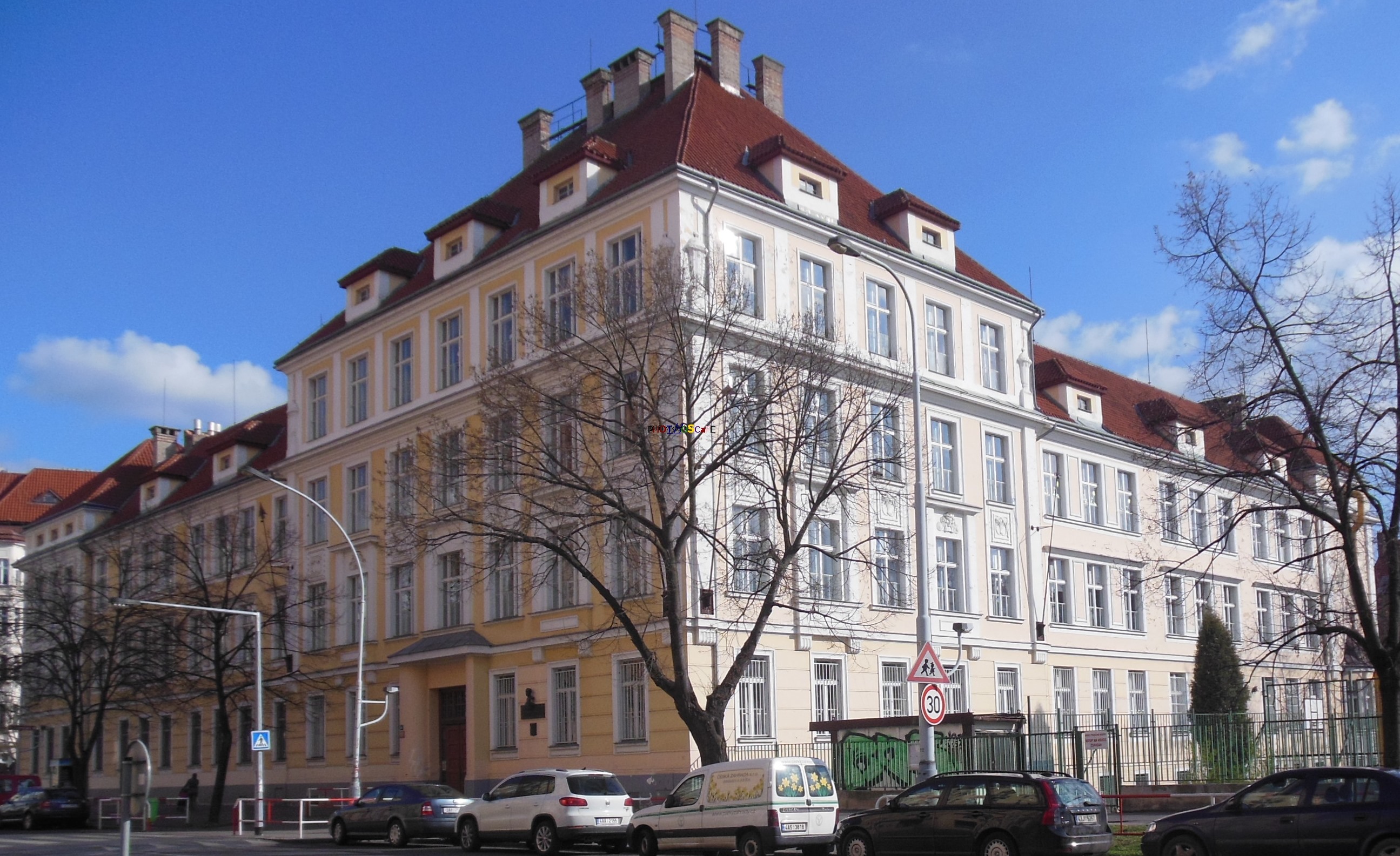 1945, we continued living in the small apartment (originally the janitor's one) and I started visiting the gymnasium Praha 13 Vršovice, Kodaňská 16 (on the right, copyright by Jiiří Viktorín, 2015). At home, I continued my studies in chemistry, designing special gun powders to propel my micro-spacecraft. I equipped a small room in my family's apartment (the original pre-war one) with a lot of bottles of chemicals. For quantitative work. I used various burettes and constructed a simple but accurate balance: its beam pivoted on a support planted in the cork of a bottle. Because I could not buy expensive milligram weights, I cut 10 grams of copper wire (I calibrated this
1945, we continued living in the small apartment (originally the janitor's one) and I started visiting the gymnasium Praha 13 Vršovice, Kodaňská 16 (on the right, copyright by Jiiří Viktorín, 2015). At home, I continued my studies in chemistry, designing special gun powders to propel my micro-spacecraft. I equipped a small room in my family's apartment (the original pre-war one) with a lot of bottles of chemicals. For quantitative work. I used various burettes and constructed a simple but accurate balance: its beam pivoted on a support planted in the cork of a bottle. Because I could not buy expensive milligram weights, I cut 10 grams of copper wire (I calibrated this 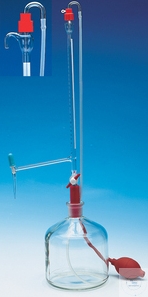 amount by the known weight of Aspirin tablets) and divided it into appropriate lengths. My two new recipe books were Organic Chemistry in Test Tube (1943),: and Chemistry of Metals (1944), both by Hermann Römpp (Czech translations from German). I studied also theoretical literature, such as The World of Modern Chemistry (1946) by Alois Červín, and the book on Nuclear energy by Vilém Santholzer. I made some money to buy burettes for volumetric titration (on the left) by selling my pyrotechnic products among fellow boys. During the course of this capitalistic enterprise, an explosion of gun powder that I designed and was mixing on my lap burned my fingers, face and hair, and temporarily sealed my eyes shut. After I returned from the hospital, my mother almost put an end to my alchemist laboratory...
amount by the known weight of Aspirin tablets) and divided it into appropriate lengths. My two new recipe books were Organic Chemistry in Test Tube (1943),: and Chemistry of Metals (1944), both by Hermann Römpp (Czech translations from German). I studied also theoretical literature, such as The World of Modern Chemistry (1946) by Alois Červín, and the book on Nuclear energy by Vilém Santholzer. I made some money to buy burettes for volumetric titration (on the left) by selling my pyrotechnic products among fellow boys. During the course of this capitalistic enterprise, an explosion of gun powder that I designed and was mixing on my lap burned my fingers, face and hair, and temporarily sealed my eyes shut. After I returned from the hospital, my mother almost put an end to my alchemist laboratory...
After the end of WW II. May 9, 1945, the original Czechoslovakia recovered (except for easternmost Podkarptská Rus, which was annexed by Soviet Union, and German population of "Sudetenland", which was expelled and its property stolen by communists). Our 2.78 years freedom terminated by a communistic putsch at the end of February 1948: since that time(up to the year 1989), we started living under communistic dictatorship — a similar fear as under the faschistic one, under Hitler. It was even worse: under Hitler, one could identify a dangerous person (a denunciant), because it beared visible German signes and talked German. The communistic danger was not as easily recognized: it beared no sigificantly communistic clothes and spoke Czech language as we. The only method to identify a communist in a street car etc. was to avoid silly and primitive faces around. Then it was safe to speak freely and, for example, tell political jokes... If a communist would hear one's jokes etc., your existence could be destroyed for ever - you could be expelled from the gymnasium, you could be eliminated from taking the maturity exams at the end of gymnasium studies, or your hidden curriculum could prohibit your planned university studies after gymnasium, as it happened to me (in my case it was not for a joke but because my father was a magistrate director of a Praha district, which my communistic class fellow interpreted as I should be a class enemy).
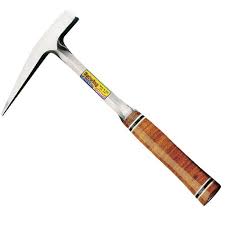 1947 - 1949: Middle of Gymnasium years (Senior High School)
1947 - 1949: Middle of Gymnasium years (Senior High School)
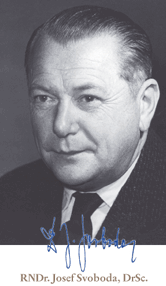 So my science turned to more peaceful pursuits: geologic investigations of the surroundings of Prague, especially the Barrandium region, using detailed geological maps (1:75,000) obtained from the Central Geological Survey of Czechoslovakia (ÚÚG), which would become my employer 8 years later. Already in that time I have been meeting with such professionals as Dr. Josef Svoboda (photo on the left), Dr.-Ing. Ladislav Čepek, Dr. Vladimír Zoubek, Dr. Vladimír Steinocher)... I combined the geological trips with hunting plants to complete the herbarium I started in 1941: soils on limestones, some with valuable magnesium near Karlštein were perfect substrates for rare plants, such as European Orchids, some Rutaceae (e.g. Dictamnus albus, dittany) and Liliaceae.
So my science turned to more peaceful pursuits: geologic investigations of the surroundings of Prague, especially the Barrandium region, using detailed geological maps (1:75,000) obtained from the Central Geological Survey of Czechoslovakia (ÚÚG), which would become my employer 8 years later. Already in that time I have been meeting with such professionals as Dr. Josef Svoboda (photo on the left), Dr.-Ing. Ladislav Čepek, Dr. Vladimír Zoubek, Dr. Vladimír Steinocher)... I combined the geological trips with hunting plants to complete the herbarium I started in 1941: soils on limestones, some with valuable magnesium near Karlštein were perfect substrates for rare plants, such as European Orchids, some Rutaceae (e.g. Dictamnus albus, dittany) and Liliaceae.
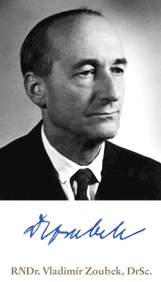 During vacations in 1949, I assisted Dr. Vladimír Zoubek (photo on the left; a professional ÚÚG geologist) two months as "fuchs" (junior assistant) on his mapping of the Algonkian spilites in phyllites in the region around the city Stříbro, western Bohemia.
During vacations in 1949, I assisted Dr. Vladimír Zoubek (photo on the left; a professional ÚÚG geologist) two months as "fuchs" (junior assistant) on his mapping of the Algonkian spilites in phyllites in the region around the city Stříbro, western Bohemia.
At about that same time (1947 to 1949), I purchased eyepieces 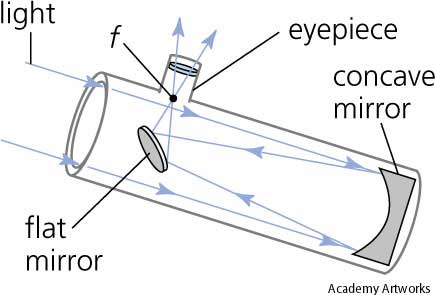 from submarine periscopes and achromatic objective lenses from a surplus shop with various mechanical and optical parts left behind by the German Army and Marines, and from faulty telescope production. I could then build a telescope - first a refractor in a wooden case, and, after I finished grinding and polishing a 5" spherical mirror (focus about 500 mm), a reflector (schematic drawing on the right). Though the optics were good, my observations without a tripod were even more handicapped than those made by my ally colleague Galileo: nevertheless, I was also able to see the four moons of Jupiter, binary stars, nebulas etc..
from submarine periscopes and achromatic objective lenses from a surplus shop with various mechanical and optical parts left behind by the German Army and Marines, and from faulty telescope production. I could then build a telescope - first a refractor in a wooden case, and, after I finished grinding and polishing a 5" spherical mirror (focus about 500 mm), a reflector (schematic drawing on the right). Though the optics were good, my observations without a tripod were even more handicapped than those made by my ally colleague Galileo: nevertheless, I was also able to see the four moons of Jupiter, binary stars, nebulas etc..
Meanwhile in school, I experienced a major disaster in December 1946: I failed mathematics. My father, having learned from our new math teacher that I did not command the algebra covered in at least the last two classes, forced me to rewrite all notes and calculate all missed homework over Christmas and New Year. Surprisingly, since I completed all that work, I started loving mathematics. My grade in math then became 1 (=A) during the rest of gymnasium, I selected mathematics for my final exams. This love of math influenced my entire future in which I always included mathematics — in my doctoral and postdoctoral studies and private research.
1949 - 1951: Late Gymnasium years (Senior High School)
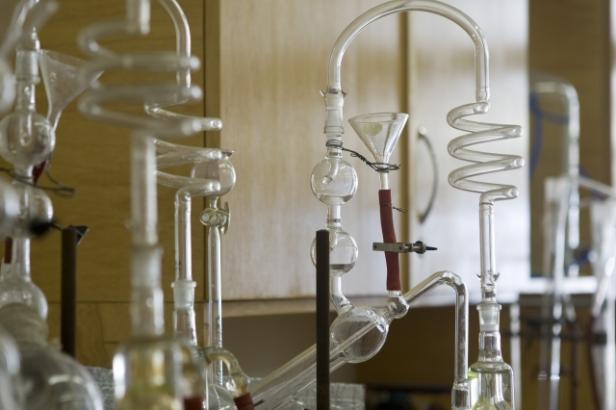
 It was at the time that I developed an interest in biochemistry and plant pharmacotherapy. During vacations, I worked on some projects in the Research Institute for Pharmacy and Biochemistry (VÚFB) newly built in front of our house on Kouřimská Street, in the department headed by Prof. RNDr. Josef Koštíř (photo on the left), the best biochemist in Czechoslovakia at that time. These projects included quantitative identification of ascorbic acid in fruit juices, and its catalytic decay due to traces of
It was at the time that I developed an interest in biochemistry and plant pharmacotherapy. During vacations, I worked on some projects in the Research Institute for Pharmacy and Biochemistry (VÚFB) newly built in front of our house on Kouřimská Street, in the department headed by Prof. RNDr. Josef Koštíř (photo on the left), the best biochemist in Czechoslovakia at that time. These projects included quantitative identification of ascorbic acid in fruit juices, and its catalytic decay due to traces of 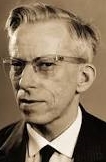 copper in aluminum alloys (typical of cooking dishes of that time). Another project was the extraction and ultraviolet-fluorescent quantitative identification of ether extract of ergot alkaloids (ergotamine, ergotoxine, etc.). The new book Organic Chemistry by Prof. Dr.-Ing. Oto Wichterle (photo on the left) (1947) threw open to me the world of modern organic chemistry and the brand new Geneva chemical terminology.
copper in aluminum alloys (typical of cooking dishes of that time). Another project was the extraction and ultraviolet-fluorescent quantitative identification of ether extract of ergot alkaloids (ergotamine, ergotoxine, etc.). The new book Organic Chemistry by Prof. Dr.-Ing. Oto Wichterle (photo on the left) (1947) threw open to me the world of modern organic chemistry and the brand new Geneva chemical terminology.
During the final two gymnasium classes; I have been using university literature and visiting university laboratory courses to study human medicine, such as:
- Atlas of Systematic Anatomy (6 volumes, in German) by Carl Toldt,
- Atlas of Topographic Anatomy (5 volumes, in Czech) by Karel Žlábek (1902-1982),
- Human Physiology by Ludvík Drastych,
- Human Embryology by Karel Žlábek, and
- General Biology by Jan Bělehrádek.
My hobbies:
I practiced piano, playing not only the classics but also Czech jazz compositions by Jaroslav Ježek (such as Bugatti Step), and his songs (especially blues) with Jiří Voskovec & Jan Werich, which in that time were almost entirely banned by the communist regime (making them difficult to obtain). In the gymnasium, I played violin in the school orchestra. 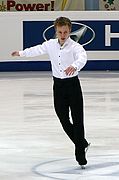
1951 - 1955: University Studies at Charles University Praha, Czechoslovakia
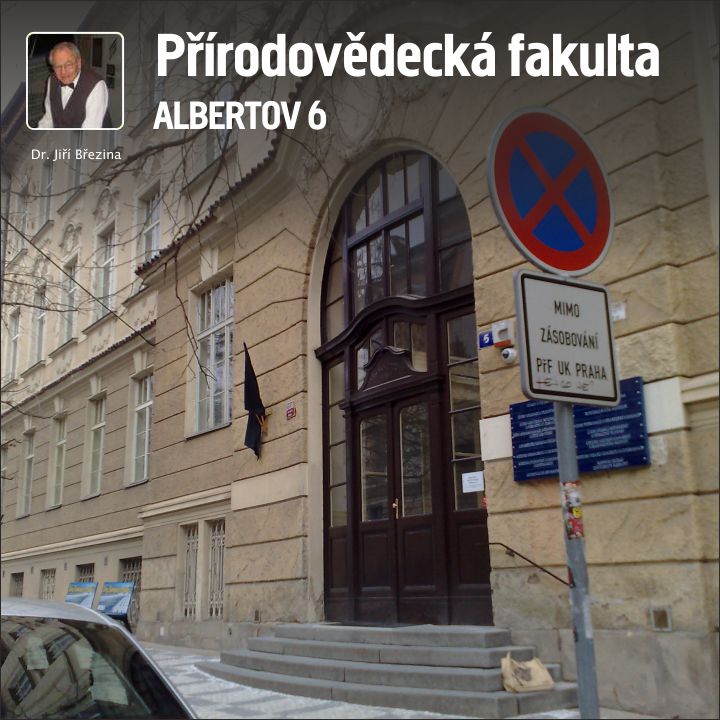 As we started studying in the fall 1951, Geology and Mineralogy had its own Faculty Department, Faculty of Geology and Geography. In the hallway around the Dean's Office, there were displayed reports about the salaries of Soviet Union geologists: they exceeded any reasonable imagination of normal citizens. The number of students enrolled was high - because it partly consisted of those of us who had no motivation to study geology. For example, some wanted to study music at the conservatorium: one student piano, another viola, and one wanted to study national dances. But, they all were prohibited for some political reasons. There were about 200 of us who were studying geology, most of us against our wishes. Previously, only about 6 students per year wanted to study geology and that represented the number of us who were actually motivated to study this subject at all. From these 6, I was interested in geology and mineralogy (but also in chemistry, botany, and astronomy) during my gymnasium studies, and my friend in geography — in both cases our interests covered geology in some way. Relatively soon, the faculty realized that the Czechoslovakia could not use as many geologists as registered and therefore started a strong sieving process. As a result, only about 80 students passed and proceeded into the next year.
As we started studying in the fall 1951, Geology and Mineralogy had its own Faculty Department, Faculty of Geology and Geography. In the hallway around the Dean's Office, there were displayed reports about the salaries of Soviet Union geologists: they exceeded any reasonable imagination of normal citizens. The number of students enrolled was high - because it partly consisted of those of us who had no motivation to study geology. For example, some wanted to study music at the conservatorium: one student piano, another viola, and one wanted to study national dances. But, they all were prohibited for some political reasons. There were about 200 of us who were studying geology, most of us against our wishes. Previously, only about 6 students per year wanted to study geology and that represented the number of us who were actually motivated to study this subject at all. From these 6, I was interested in geology and mineralogy (but also in chemistry, botany, and astronomy) during my gymnasium studies, and my friend in geography — in both cases our interests covered geology in some way. Relatively soon, the faculty realized that the Czechoslovakia could not use as many geologists as registered and therefore started a strong sieving process. As a result, only about 80 students passed and proceeded into the next year.
During my early studies, I enjoyed taking 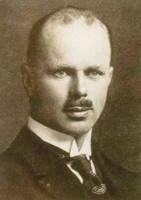 lectures and exams with prominent faculty personalities. On the first place it was Professor of geology Dr. Radim Kettner (photo on the left). His universal influence caused that in Czechoslovak geology he was known as "Geocaesar". Using about 10 best textbooks of Physical Geology during my 35 year teacging Physical Geology, no one approached the quality of the Physical Geology in four volumes by Professor Kettner. It was the most suitable introduction to study Earth sciences. He was followed by Professor of Geology Dr. Odolen Kodym. Professor of mineralogy Dr. Jiří Novák:(photo on the right)
lectures and exams with prominent faculty personalities. On the first place it was Professor of geology Dr. Radim Kettner (photo on the left). His universal influence caused that in Czechoslovak geology he was known as "Geocaesar". Using about 10 best textbooks of Physical Geology during my 35 year teacging Physical Geology, no one approached the quality of the Physical Geology in four volumes by Professor Kettner. It was the most suitable introduction to study Earth sciences. He was followed by Professor of Geology Dr. Odolen Kodym. Professor of mineralogy Dr. Jiří Novák:(photo on the right) 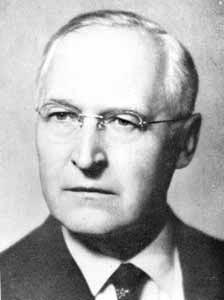 taught me
taught me  loving crystallography, Professor of geology Dr. Jaromír Koutek, was specialized in metallic resources, similarly as Professor of geology Zdeněk Pouba, also specialized in mineral resources. I am proud that I could learn some wisdom in analytical chemistry from Professor Jaroslav Heyrovský (photo on the left), inventor of polarography, for which he later (1959) received the Nobel prize in chemistry. (I shared some lectures with his daughter Judith).
loving crystallography, Professor of geology Dr. Jaromír Koutek, was specialized in metallic resources, similarly as Professor of geology Zdeněk Pouba, also specialized in mineral resources. I am proud that I could learn some wisdom in analytical chemistry from Professor Jaroslav Heyrovský (photo on the left), inventor of polarography, for which he later (1959) received the Nobel prize in chemistry. (I shared some lectures with his daughter Judith).
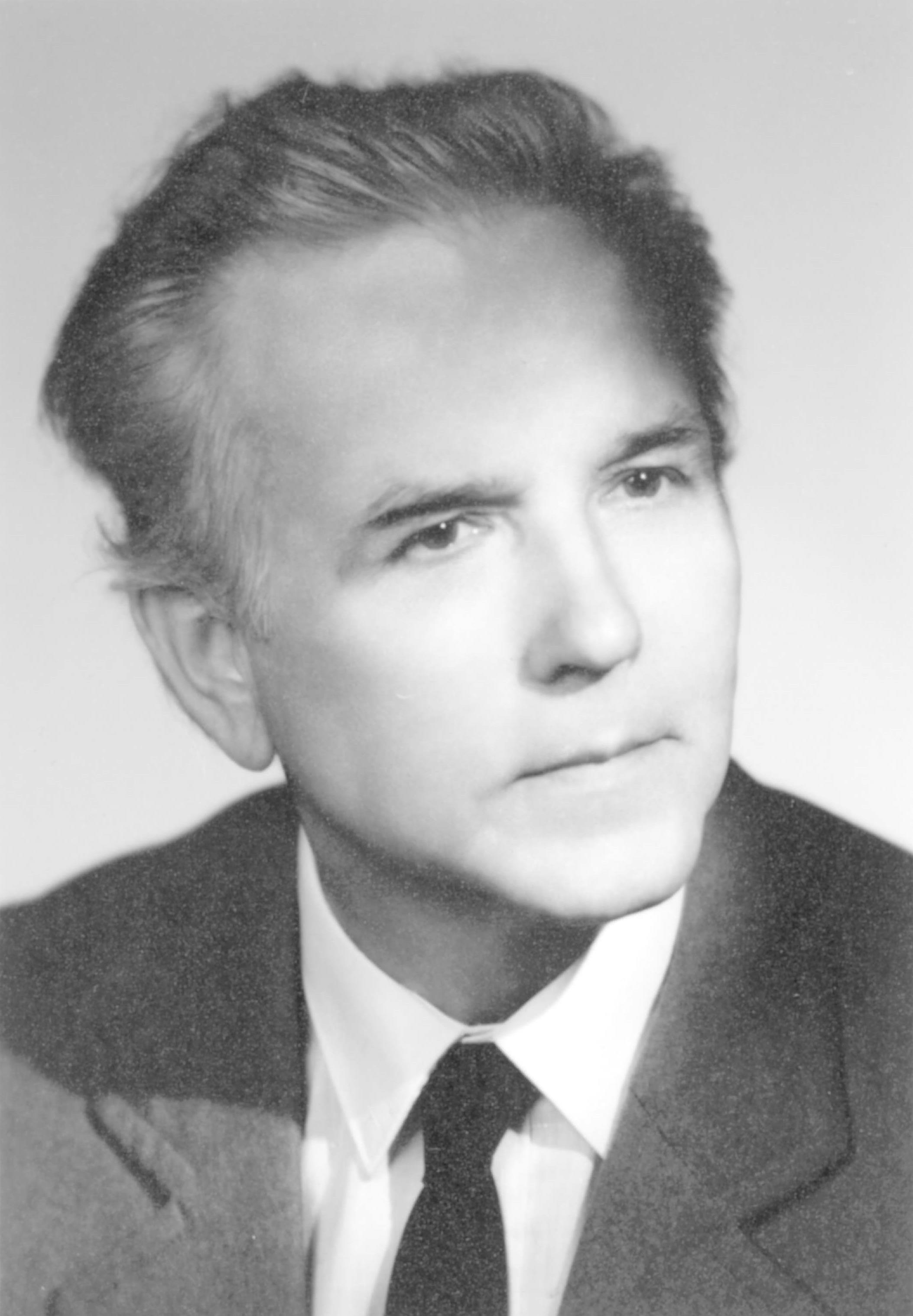 In 1954, choosing my field of study within geology, I selected sedimentary petrology taught by docent (later Professor) Dr. Jiří Konta (1971 photo on the left). He was the only faculty, who - in these politically difficult times - instructed us to include American literature into our work, such as Ralph E. GRIM, Clay mineralogy, and G. W. BRINDLEY, Crystal structure of clay minerals and their x-ray identification. This was unique, because other faculty required us to study preferably from Soviet literature. Quoting Soviet authors on the first place was a duty. I am especially indepted to Professor Konta for his civil courage and for introducing us to impartial scientific study. His reports from traveling through United States were very impressive and pioneering in that politically dark time.
In 1954, choosing my field of study within geology, I selected sedimentary petrology taught by docent (later Professor) Dr. Jiří Konta (1971 photo on the left). He was the only faculty, who - in these politically difficult times - instructed us to include American literature into our work, such as Ralph E. GRIM, Clay mineralogy, and G. W. BRINDLEY, Crystal structure of clay minerals and their x-ray identification. This was unique, because other faculty required us to study preferably from Soviet literature. Quoting Soviet authors on the first place was a duty. I am especially indepted to Professor Konta for his civil courage and for introducing us to impartial scientific study. His reports from traveling through United States were very impressive and pioneering in that politically dark time.
..

